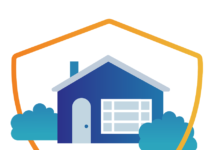Many would argue that your personal information is among the most valuable assets you have in modern life; in the wrong hands, your details can be used to apply for fraudulent loans, services and goods. While someone else makes off with the spoils, you can be left with the bad credit file, debt, or worse.
The good news is there’s some very simple steps you can take to protect your privacy online. This doesn’t just help keep you safe from scams and frauds, but you can also easily protect yourself against overzealous online advertisements, your browsing habits being scrutinised and more.
So, if you’re concerned about your digital footprint, and what information others can glean from your daily habits, here’s some simple steps you can take right now.
1. Use a better web browser to hide ads and prevent trackers
Without taking any additional steps, popular web browsers allow all manner of monitoring of your online behaviour. Through display advertising, the use of analytics and various tracking codes, websites can (though not all do) track your behaviour on their sites, but across others, and this can be used to deliver more targeted (read annoying) advertising straight to you.
Fortunately, this isn’t hard to stop in its tracks.
If you use Google Chrome, Mozilla Firefox or Microsoft Edge, you can download a couple of free plugins which will hide ads, block trackers and anonymise your online experience somewhat.
Adblock Plus | The world’s #1 free ad blocker is our favourite, and it does everything you need in just one plugin. It’s free, and allows you to block ads, tracking cookies and more. Better yet, if there’s websites that you’re happy to show advertising on, you can exempt them. Otherwise, ads can be gone for good.
If you want to take a bigger step, consider a privacy-first web browser like Brave. Not only does it have ad-blocking technology built in, but it has a free / low cost VPN you can use as well, which is especially handy if you’re on a public (especially insecure) WiFi to keep your activities private.
However, this mightn’t be the best VPN option. So how do you find what is?
2. Use a VPN to enhance your privacy online
While a privacy respecting browser experience is undoubtedly a good start, a VPN is a step further. While there are free VPNs, they’re often best avoided for a paid option that provides a faster experience, a choice of endpoints (i.e. where your browsing appears to come from) and better privacy credentials.
But how do you choose a good one?
Fortunately, there’s many websites out there that have done the hard work to sort the good VPNs from the bad ones, and a good resource is PrivacySharks. They’ve have ranked most of the best-known VPN providers by price, free trials, features, number of servers and so much more.
Want to find a VPN provider that has endpoints in your country? Easy. Want to find one that has endpoints somewhere else (so your traffic appears to come from there)? Easy too.
Unsurprisingly, there’s some big names in the top 10, including NordVPN, Surfshark, IP Vanish, Private Internet Access (or PIA) and more.
Whatever VPN you settle with, PrivacySharks will help you find it.
3. Be careful with what information you give, and where
This seems like common sense, but it’s so easy to make mistakes! Here’s some no-nonsense tips to make sure you’re careful with where your information goes:
- Use different passwords for different websites – make sure that if your password is compromised on one website, it can’t be used anywhere else.
- Use two-factor authentication where possible; SMS codes are good, but something like Google Authenticator or Authy is much better.
- Don’t hand over credit card details willy nilly. Look for the green padlock on payment websites to make sure you’re giving details to the right place.
- Never click on links in your email to your internet banking or payment services. Always type in the URLs by hand to make sure you end up at the right place, not someone pretending to be your bank.
- Don’t give out your details by email, or by phone. If someone rings claiming to be (for example) the Australian Tax Office, tell them you’ll call them back and do so using a phone number from the official ATO website – never give details to someone who rings and claims to be a tax officer investigating you. They don’t do that!
It’s not hard to stay safe online, provided you have and use the right tools. Stay safe out there!





Chris, that’s fine and dandy for a Windows desktop, what about Android devices?